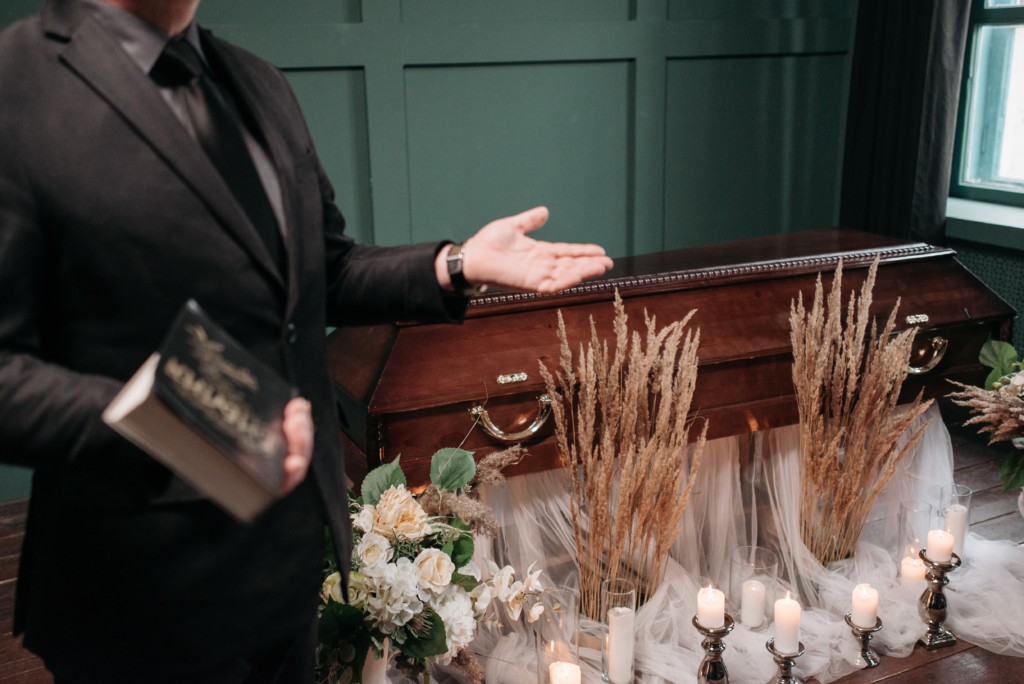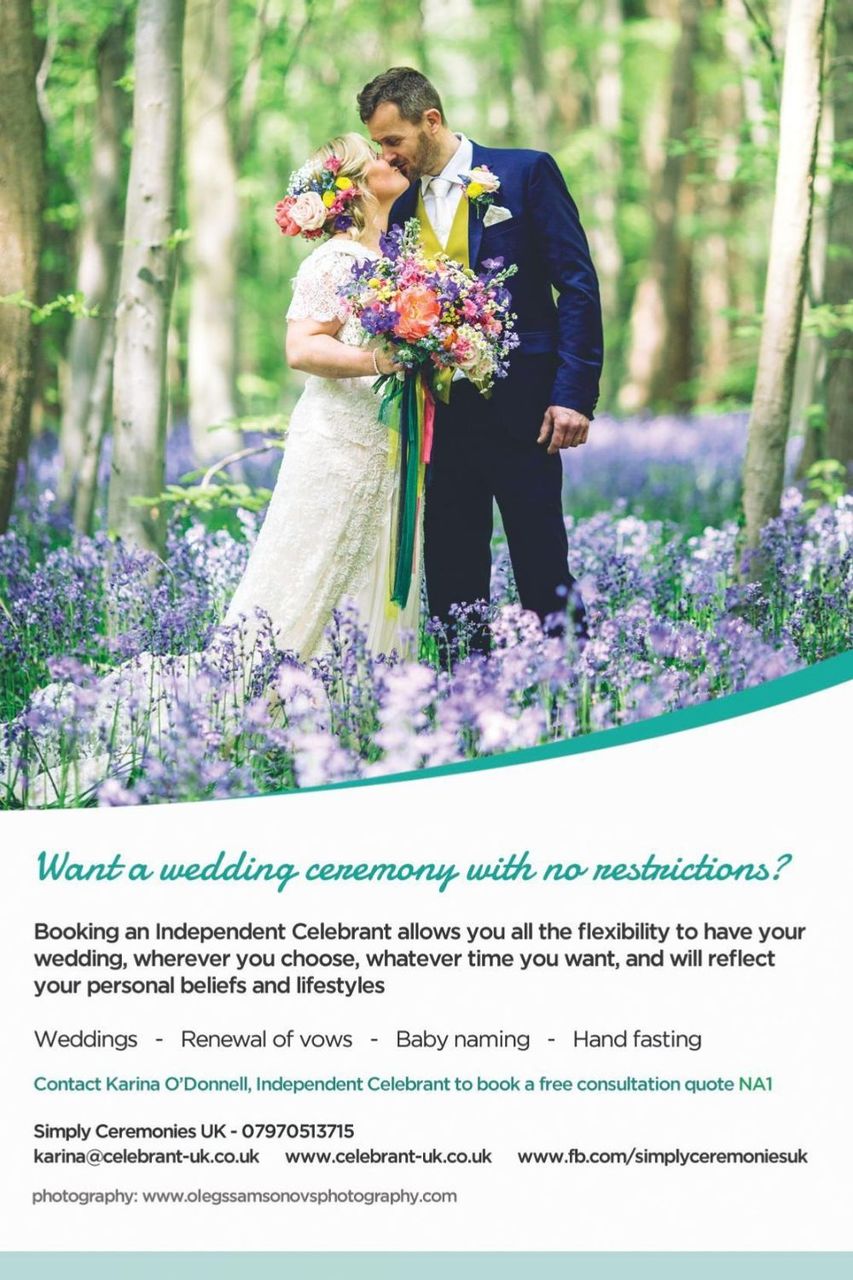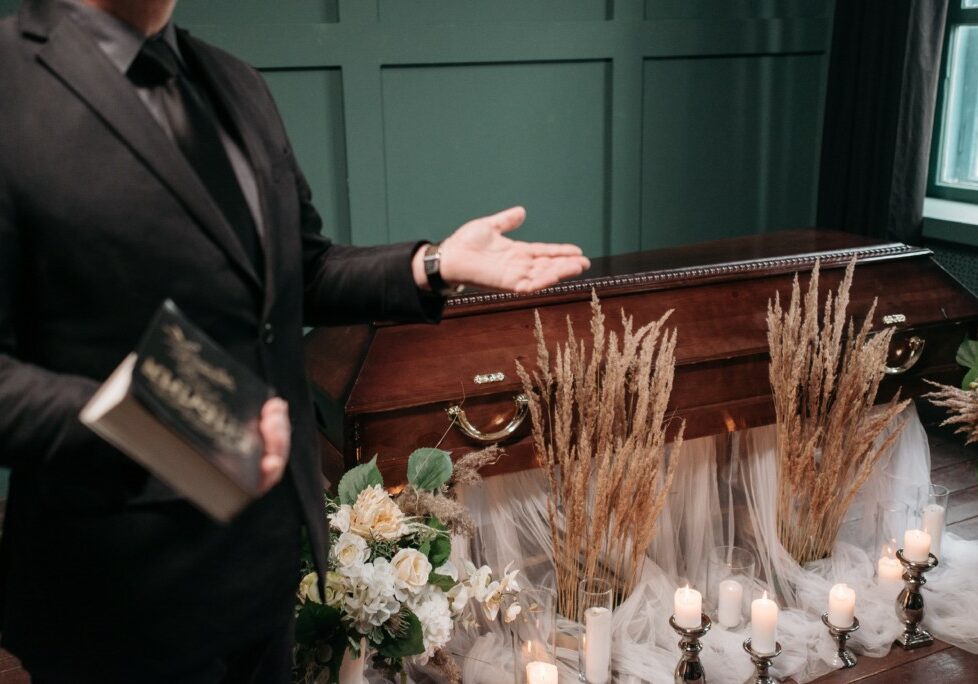
Mourn For Me, But Also Celebrate
Up until the Nineties, relatives of a deceased person had to try to persuade a local church minister to lead the funeral service… because, well, the church’s way was The Way. But if family members weren’t serious churchgoers (such villainy!) the funeral ceremony was often bland and universal with, in fact, everything of value never quite being touched upon.
Then something snapped. People who felt short-changed by previous churchy eulogies were quizzing funeral directors about alternatives. And those who had grown up amid the enlightened 1960s – now tasked with sorting out funerals for mums and dads – wanted something in keeping with their own happy momentum. It was from these demands that the real turnaround stemmed: funerals became about life, rather than the lemon-difficult concept of life-after-death.
Today, over 80% of funeral directors are asked to organise a ‘celebration of life’ (The Telegraph, 2017) and such services are led by (you’ve guessed it) Funeral Celebrants. British Humanist Association-trained celebrants now conduct more than 7,000 funerals a year.
Who can lead a funeral service?
Those people who regularly attend a place of worship can expect things to be done in the grand manner, led by a priest, imam, minister, Rabbi, elder or pastor. Others may call upon a Funeral Celebrant, seen as a specialist in bereavement. The choice is, ultimately, down to the individual but – hear us now – making a right choice will stave off the nameless dread.
The Celebrant’s service can be spiritual, devotional or semi-religious in nature. It zigzags between religion and humanism (or just humanism) to give whatever mix of worldly and heavenly colour a family thinks is appropriate.
Where can a funeral be held?
There is nothing written down to tell us where to have a funeral service, so in fact ‘location’ has endless meanings. Most ceremonies will take place at a crematorium or cemetery chapel for ease of relations visiting and the funeral director’s staff. But places like village halls and grassy knolls are fast becoming fashionable. There is also a burgeoning home funeral movement.
When should a funeral take place?
There is no law stating the maximum length of time from someone’s death until their funeral. But many of us will want to have a ceremony for our loved one sooner rather than later. That’s understandable, first, because it seems morally remiss of us as humans to leave it too long, and secondly, because having a funeral helps us to come to terms with things.
What are the benefits of a Funeral Celebrant?
Celebrants will support and counsel the people they meet and quite often become friends, which makes them more than just ministers. Celebrants meet families before the funeral to help build a fitting ceremony. They will try to cater for the wishes of the bereaved and use family-chosen music in their services. Being death-creative is something the British – with the help of Celebrants – are getting very good at.
The words spoken by a Funeral Celebrant are not simply bundled together; they are made into something that we can use in our own lives and to help with our grief. It is worth remembering that a delicate and well-placed passage in a Celebrant service has the potential to heal. Celebrants will include special memories, and stories bringing light to the life of your loved one, and celebrating their place in your own life.
A Celebrant led funeral is relaxed, flexible and offers you the opportunity to have the funeral wherever you like with content that means something to you and your family. No longer do you have to stick to the traditions of a funeral, you can reflect their life through their beliefs and lifestyle.

Photogrpaher Credit: Bec Zacher Photography
subscribe
drop us your email and we'll send you beautiful ideas to inspire your perfect celebration



















